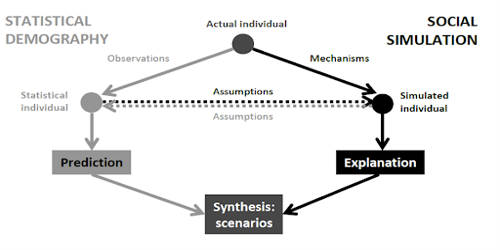According to new research, there is now just a dearth of conclusive evidence supporting the effectiveness of the much-promoted “learner-centered” method of instruction.
The goal of learner-centered pedagogy is to get students more involved in school decisions, active in class, and engaged in learning.
Even though there isn’t a substantial body of evidence about the implementation and results of LCP, international organizations like UNESCO and the World Bank have spent a lot of time, money, and resources advocating for it.
New research, by Dr. Nozomi Sakata, Dr. Leanne Cameron and Dr. Nicholas Bremner show how the approach can have positive results, but there is currently little objective evidence to prove its effectiveness. More extensive, unbiased, rigorous research on its effectiveness over time has been urged by researchers.
According to several research, the teaching method boosted motivation, confidence, and improved relationships according to input from teachers and students. Yet, there is little evidence that it is more efficient than the methods teachers have been using up until now.
Larger scale experimental studies may be challenging from a methodological perspective and are likely to imply a large investment in time and resources. However, on the basis of current evidence, there is a real gap in hard data to prove or disprove the value of LCP, especially given its continued prominence in worldwide policy discourses.
Dr. Nicholas Bremner
Dr. Bremner, from the University of Exeter, said: “Existing evidence has shown learner-centred pedagogy can have a positive impact, but not enough to justify such a massive policy emphasis worldwide. Much of the evidence is too thin and simplistic to recommend either schools either abandon it or embrace it. On the basis of current evidence, there is a real gap in hard data to prove or disprove the value of LCP, especially given its continued prominence in worldwide policy discourses.”
“Many policies have been introduced with good intentions, but they could be implemented in a more thoughtful way which allows teachers to make sensible decisions about using different methods and approaches at different times.”
In the article, published in the International Journal of Educational Development, researchers conducted a review of 62 journal articles from 2001 to 2020 reporting the outcomes of LCP implementation in low- to middle-income countries around the world.
There were seven bad and 28 positive examples of teachers’ LCP experiences given in the literature. Only 9 out of the 62 trials, however, had unbiased proof of enhanced academic learning results.
In sum, 26 out of the 62 books indicated instances where teachers or students believed that student learning had improved, whereas 9 texts cited instances where student learning had not improved at all.
Dr. Bremner said: “Larger scale experimental studies may be challenging from a methodological perspective and are likely to imply a large investment in time and resources. However, on the basis of current evidence, there is a real gap in hard data to prove or disprove the value of LCP, especially given its continued prominence in worldwide policy discourses.”
“The more subjective research, for example studies presenting perspectives of teachers and students, was more prevalent than objective research, and did seem to lean towards positive experiences of LCP for non-academic outcomes such as student motivation and confidence, as well as enhanced relationships. Such outcomes may not always be the priority for educational policymakers, but many would argue they are extremely important.”
















